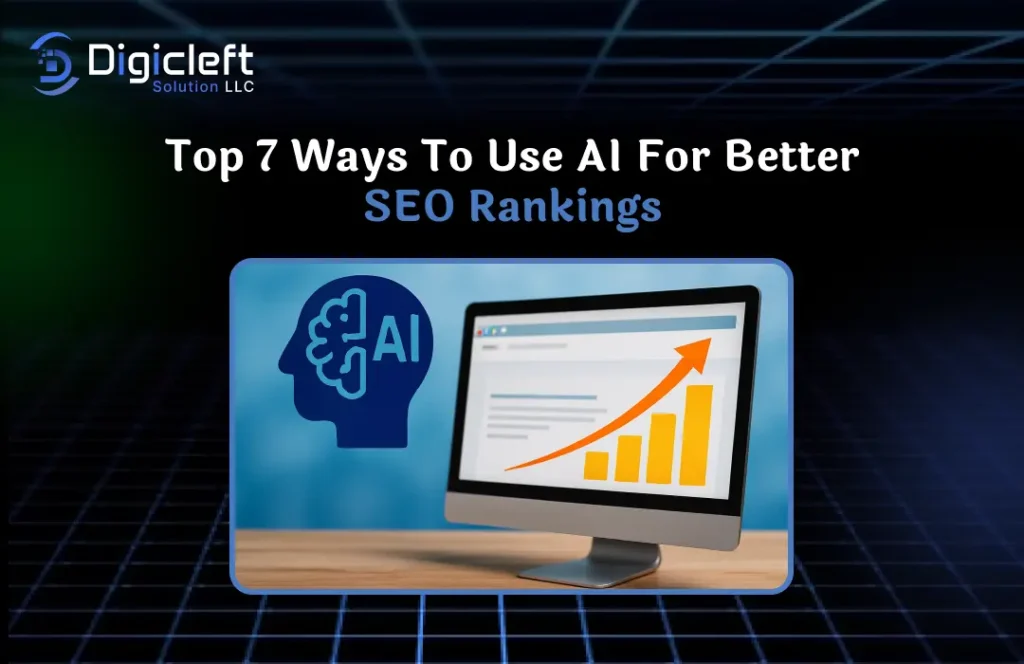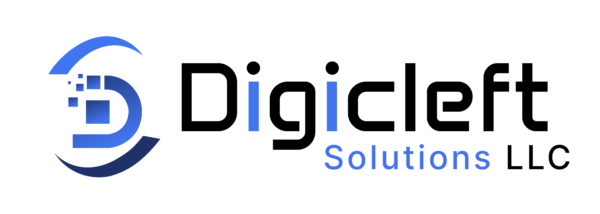
Let’s be honest it’s isn’t what it used to be. Gone are the days when stuffing a few keywords into a blog post would push you to the top of Google. Today, search engines are smarter, and users are more demanding. That’s where Artificial Intelligence (AI) steps in. AI is no longer just a buzzword; it’s actively transforming how businesses approach SEO. Whether you’re running a startup, managing a blog, or leading a company like digicleft solution, understanding AI-powered SEO is the difference between ranking on page one or getting lost in the void of page ten.
Understanding the Role of AI in SEO
Before jumping into strategies, it’s worth understanding how AI already plays a role in SEO. Search engines like Google use AI-driven algorithms such as RankBrain and BERT to interpret user intent, deliver better results, and evaluate content quality.
Traditional SEO used to be about checklists fit keywords, build backlinks, and hope for the best. Today, it’s about context, personalization, and predicting what the user really wants. AI makes this possible by analyzing vast amounts of data faster than humans ever could.
1. Smarter Keyword Research with AI
Keyword research is the backbone of SEO. But manually digging through endless lists feels like searching for a needle in a haystack. AI tools like SEMrush, Ahrefs, or Clearscope use machine learning to predict not just keyword volume but also user intent.
For example, if you want to rank for “best coffee makers,” traditional tools show related terms. AI goes deeper it identifies whether users want reviews, comparisons, or buying guides. That’s the power of AI-driven keyword research.
2. AI for Content Creation and Optimization
Creating SEO-friendly content takes time. From finding keywords to structuring headlines, it can feel overwhelming. AI assists by offering data-backed recommendations such as:
- Suggesting headlines that capture attention.
- Identifying content gaps compared to competitors.
- Improving readability by analyzing sentence length and tone.
But here’s the catch AI helps with structure and optimization, but your human voice is irreplaceable. Blending AI suggestions with natural writing makes your content stand out.
3. Personalized Content Strategies
People crave content that feels tailored to them. AI excels at personalization by analyzing user behavior, browsing history, and demographics. Think about Netflix recommending your next show why not apply the same idea to SEO?
If your site suggests products, blog posts, or services based on user patterns, engagement increases and Google rewards engagement.
4. Voice Search Optimization
“Hey Siri, find me the best Italian restaurant near me.” Sound familiar? Voice search is booming, thanks to AI-powered assistants like Alexa and Google Assistant. Optimizing for voice search means focusing on conversational queries. AI tools help by:
- Identifying long-tail, question-based keywords.
- Understanding how natural speech differs from typed queries.
By adjusting your SEO strategy for voice, you’re not just ranking for text queries you’re future-proofing your content.
5. AI-Powered Competitor Analysis
Want to outperform your competitors? First, you need to know what they’re doing right (and wrong). AI tools simplify competitor analysis by tracking:
- Keywords they rank for.
- Backlink sources.
- Content performance metrics.
Instead of spending days manually researching, AI delivers insights in minutes. This allows you to spot opportunities like targeting keywords competitors missed or building better backlinks.
6. Enhancing User Experience (UX) with AI
SEO isn’t just about keywords it’s about how users interact with your site. If your website loads slowly, has poor navigation, or doesn’t answer queries quickly, rankings suffer. AI improves UX by:
- Monitoring user behavior to find weak points.
- Powering chatbots for instant answers.
- Personalizing recommendations for each visitor.
When users stay longer and interact more, Google sees it as a signal of quality directly boosting your rankings.
7. Predictive SEO Analytics
Imagine seeing SEO trends before they happen. That’s what predictive analytics does. AI studies data patterns and forecasts which topics, keywords, or formats will trend.
For example, AI might detect rising interest in “eco-friendly tech gadgets” weeks before competitors notice. By creating content early, you secure the top spot while others play catch-up.

Real-World Tools and Platforms to Try
- Surfer SEO – content optimization.
- Frase – content research and outlines.
- Jasper AI – content assistance.
- MarketMuse – in-depth content analysis.
- digicleft solution – tailored SEO strategies with AI integration.
Common Mistakes to Avoid with AI in SEO
- Over-automation – publishing AI-written content without human editing.
- Ignoring creativity – forgetting that SEO still values originality and storytelling.
- Misusing data – chasing irrelevant keywords that don’t match your audience.
AI should be your assistant, not your replacement.
The Future of AI and SEO
Looking ahead, AI will only become more central to SEO. We’ll see smarter search algorithms, more personalized results, and sharper predictive insights.
But here’s the big question: will AI replace human SEO experts? The short answer: no. AI can process data and suggest strategies, but it can’t replace human creativity, empathy, and storytelling. The best results come from combining both.
Conclusion
AI is no longer optional in the world of SEO it’s essential. From keyword research to predictive analytics, AI empowers businesses and creators to craft smarter strategies and achieve higher rankings. Whether you’re an individual blogger or running a digital agency like digicleft solution, embracing AI means staying ahead of the curve.
The future of SEO belongs to those who adapt, innovate, and use AI as a tool not a crutch.
FAQs
1. Can AI replace human writers in SEO?
No. AI can assist with structure, keyword suggestions, and optimization, but human creativity and authenticity are irreplaceable.
2. How do I start using AI for SEO if I’m a beginner?
Begin with simple tools like Surfer SEO or Frase. They provide step-by-step guidance for keyword usage and content optimization.
3. Is AI expensive for small businesses?
Not necessarily. Many AI tools offer affordable plans. Start small, and scale as your SEO strategy grows.
4. Which AI tools work best for keyword research?
Tools like SEMrush, Ahrefs, and MarketMuse are highly effective for AI-driven keyword discovery.
5. Can AI guarantee #1 rankings on Google?
No tool can guarantee rankings. AI boosts your chances but rankings depend on content quality, competition, and user engagement.


